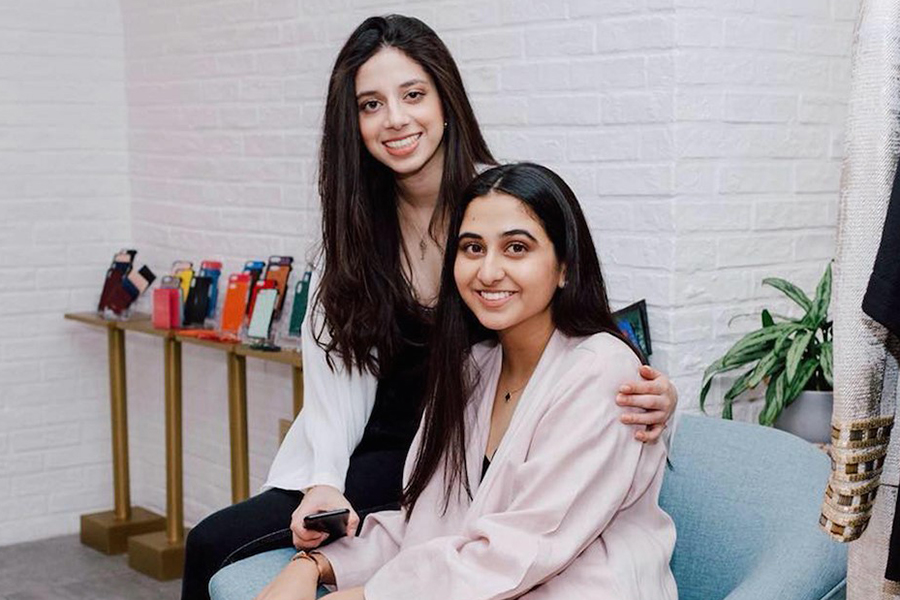
Amani and Manal Waqi
Gone are the days of five-year plans! “We follow an extempore approach to be agile,” confirms Manal Waqi, founder of small, home-grown businesses, The Amanqi Edit & The Amanqi Lab.
Launched in October 2016, The Amanqi Edit is an online platform that operates along with physical pop-up spaces focused on curating and presenting contemporary and emerging brands and designers. Stemming from a similar ethos, The Amanqi Lab was launched in December 2019 and curates emerging, clean beauty brands and products. The idea behind both platforms is to showcase products and brands that are difficult to find, original and innovative. Currently, the platforms offer 12 brands in total.
As COVID-19 pandemic hit, alongside impacting precious human lives, it has also affected and altered the rules of retailing. Agile businesses have adapted and accelerated plans that were already put in motion – mostly their digitalisation initiatives. Another big change that has happened is planning for the future, but being agile in approach, to adapt to the changing consumption patterns and business environment.
“As a small business, we follow an “extempore” approach to be agile in doing business. We are flexible enough to tweak our proposition as and when required, while keeping the DNA intact,” Waqi states. “During the past few months, this approach has helped us to stay agile and afloat. With COVID-19, we have seen how things can change overnight, and that’s why we aren’t in favour of making long-term plans. People’s budgets are changing leading to transformed consumption patterns; brands’ approach towards collaboration has also changed. Having said that, we are constantly strategising on ‘smarter’ ways to sustain the business.”
“We also had to make our business model more flexible, offering our brands customised packages. We are aligning with the brands in a better manner to be able to overcome the current challenges together. The crisis has actually strengthened our commitment to building a community through a direct sales channel for all our brands. Now, our focus has become even more razor-sharp to help the brands on The Amanqi Edit and The Amanqi Lab build a strong digital base through a user-friendly e-commerce platform, coupled with social media outreach through meaningful content,” she adds.
Also read: We’re very fortunate to have government support
Digitally adapting to the new normal
Both The Amanqi Edit and The Amanqi Lab used to leverage the pop-up format, which became challenging owing to the COVID-19 outbreak. “As we adapted to the ‘new normal’, we transitioned to creative digital alternatives for our pop-ups, with our soon-to-launch ‘digital showroom’ concept,” Waqi shares. The first digital showroom by The Amanqi Edit will take place from the August 24 to September 12, 2020. The digital showroom will help consumers and buyers to discover emerging brands from the GCC and beyond.
The initial plan was to participate in the Couture Week in Paris in July through an affordable pop-up acting as a B2B showroom for emerging fashion and fine jewellery brands from the Middle East. The show was rescheduled to September due to COVID-19. “However, we feel it is premature to engage in such a big project at the moment, amid a lot of uncertainty on the outcome. That’s why we have decided to organise the digital showroom involving 10 of our brands – all are emerging and from the GCC.”
Like most small businesses, The Amanqi Edit has also had to pivot to sustain. Through the digital showroom initiative, it is now taking a B2B approach by connecting the emerging brands on its platform with buyers from the likes of Net-A-Porter, Ounass, Selfridges and a lot of boutiques from London. “We will enable the B2B buyers as well as consumers to make purchases through the digital showroom. If the format works well, we will consider deploying it in specific markets too, like Switzerland where we used to do a lot of pop-ups,” Waqi adds.
Being flexible to sustain
Towards the beginning of the year, Waqi was concerned about the survival of the brands on its platforms, which are really emerging in nature. She had to pivot the commission structure making it friendlier for the emerging brands, mostly belonging to the fine jewellery category. The cost of producing pieces is already high and the margins are low. The brands didn’t know how people would respond; if they would at all buy fine jewellery. As such, the brands pivoted very quickly by adopting a made-to-order approach, thereby avoiding product wastage.
“While people were very anxious towards March-April, we were pleasantly surprised as fine jewellery actually turned into a hero category for The Amanqi Edit over the past couple of months,” Waqi reveals. “From the spend patterns on our platforms, we can see an increase in consumer confidence. Although the fashion category is still challenged, as most of the brands offer formal-style apparel, which is not in demand at the moment. If we had more athleisure brands, it probably would have sold well. Interestingly, our customers have been more willing to spend on fine jewellery from emerging brands as they keener to shop locally and give back in their own way. We have seen a 2X growth in the fine jewellery category, especially within the AED2,000-5,000 price range since the end of Ramadan.”
As there was a general movement around self-care, The Amanqi Lab platform has also performed well. “However, we had expected the beauty segment to perform even better,” she concludes.
For all the latest retail news from the Middle East, follow us on Twitter and LinkedIn, like us on Facebook and subscribe to our YouTube page.
Notifications